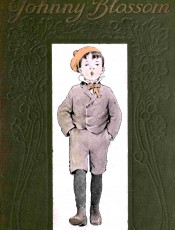the snail is a kind-hearted, happy-go-lucky creature. carrying his house with him, he leaves no cares at home. he is otium cum dignitate. he is the moral antipode of the ant. he shirks responsibilities, and turns the cold shoulder on labor and fret. deliberation, calmness of intellect, consciousness of superiority, are in his slow, majestic tread. so that he gets to the place in mind, it is of no possible consequence how long the journey may be. the crystal day is all his own. he is a nabob, a gentleman of leisure, and considers haste vulgar, and proper only to grasshoppers and miserable sparrows.
rose-bugs are impertinent. humming-birds, bright and beautiful, come too seldom amongst our flowers of june, but the bees come instead, and burden the air with their soothing baritone. yet the bees have a way of pressing personal souvenirs upon you. pray you, avoid it! as hamlet tells the players.
caterpillars fascinate a spectator. they are full of mysterious interest, berthed in their soft cocoons, deftly caught on to the jagged edges of stone walls, or bent on travelling from leaf to leaf, with their "many twinkling feet" in full motion. a caterpillar, however varied and attractive his coloring, is not a favorite with society, or with that branch of it which goes about in bonnets and high-heeled boots. moralists, rather, shall befriend him, the kind little creeper, and treat him with that reverence which the knowledge of his coming glories inspires.
the earth-worm is the pariah of garden-folk. his appearance, primarily, is against him; he looks like an intriguer, an uneasy, officious sinner, wriggling his crooked way through the world. the "inadvertent step," which cowper would fain spare him, ends too often our groundling's peregrinations. he is born to be disregarded and abused; a child, whose protective instincts are yet dormant, will decimate him for the pleasure of seeing his posthumous remnants take up their separate lives, and unconcernedly disperse. worm is a reputed political exile. with his greater cousin, the snake, he shares the popular odium of erin's isle. i have heard an old fellow, mowing grass, turn about to tell an incredulous companion that if, by any chance, one could put a bit of irish soil, nay, so small a thing as a shamrock, under a "yankee wurrum," that instant would be the death of him.
the legend is given in that very quaint "lives of the saints," which warton thinks was written in the twelfth century:—
"seyn pateryck com thoru goddes grace to preche in irelonde,
to teche men ther ryt believe jehu cryste to onderstonde;
so fil of worms that londe he found that no man in myghte gon,
in som stede for worms that he nas wenemyd anon;
seyn pateryck bade our lord cryste that the londe delyvered were
of thilke foul wormis that none ne com ther!"
